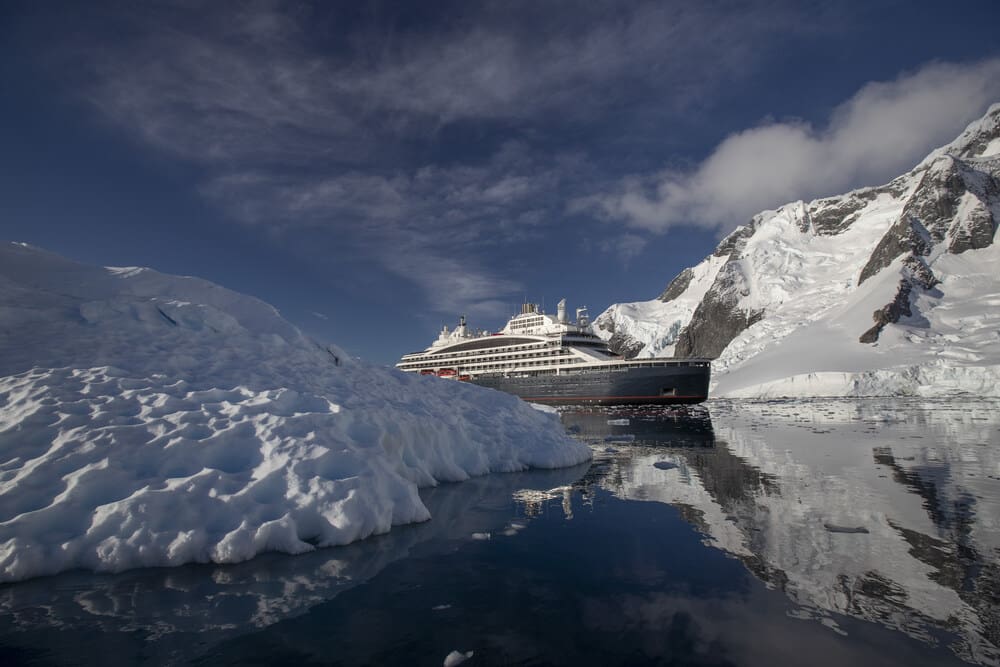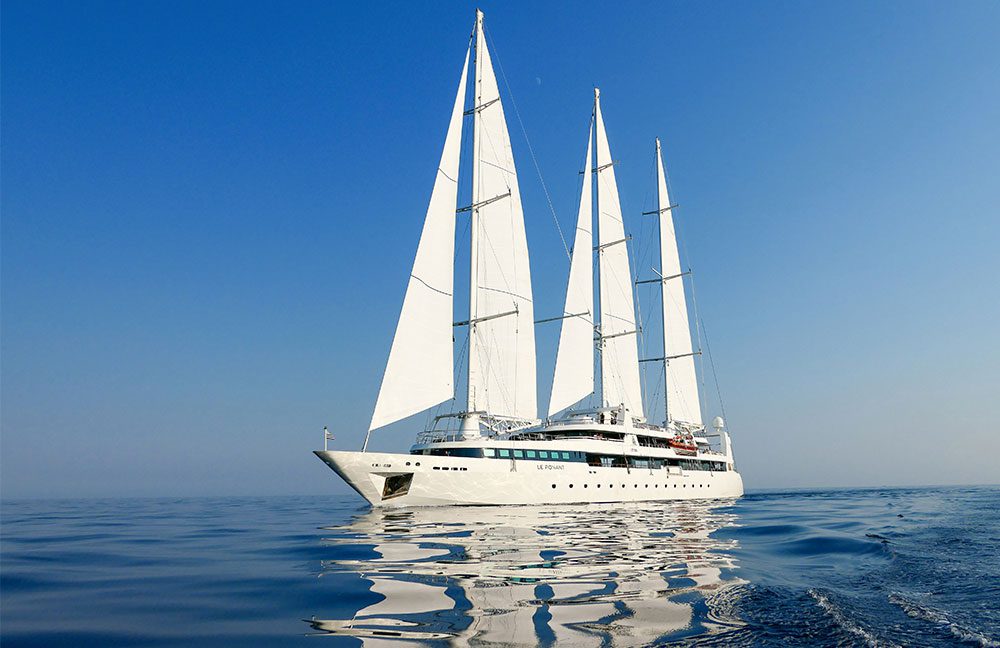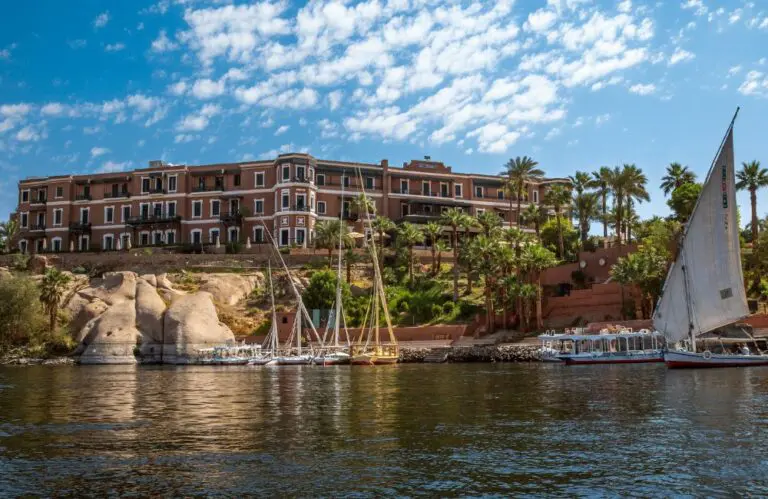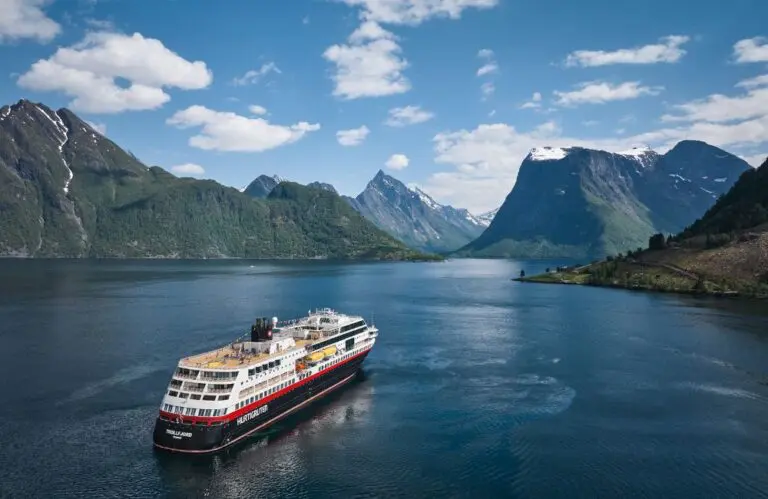Ponant has released the findings of its 2023 Sustainability Report, revealing the cruise operator’s significant progress in its goal towards redefining tourism and net-zero emissions by 2050.
From developing innovative eco-friendly ships and other technologies to tangible reductions in its environmental footprint, including an 11 per cent reduction in CO2 emissions per cruise day achieved in ‘23, Ponant says it’s aiming to push boundaries and set new standards for meaningful and more sustainable travel.
“Although we are proud of our accomplishments, we acknowledge that the journey toward sustainable tourism is ongoing,” says Wassim Daoud, Head of CSR and Sustainability at Ponant.
“Through innovation and collaboration, Ponant aims to set the highest industry standard for more accountable and transparent sustainability practices,” he says.

The company’s three-part sustainability roadmap is centred on environmental impact while also focusing on positive contributions made from cutting-edge technologies. In addition to ongoing onboard initiatives, its research and development team is actively developing projects aimed at achieving carbon neutrality.
Ponant says it is making steady progress toward its ambitious goals through biofuel trials, significant reductions in single-use plastics, and efforts to support remote communities and scientific research – while advancing toward its long-term vision of achieving net-zero emissions by 2050.
Highlights of the report include:
Reduction in CO2 emissions
- By investing in a modern fleet, it has achieved an 11 per cent reduction in CO2 emissions per cruise day compared to the 2018 benchmark year.
- In 2023, the company trialed the use of B100 biofuel, which generates 90 per cent fewer CO2 emissions than fossil fuels. With 12 vessels already certified for biofuel use, it has laid the groundwork for reaching the 2050 goal of net-zero emissions.
- In autumn 2023 (AU/NZ spring), its Explorer vessel Le Champlain trialed the B100 biofuel, produced by recycling used edible oils collected in France. Run by ALTENS, the test was its first in France.
Zero plastic objective: drinking water treatment and bottling onboard
- Its wastewater treatment systems and strict on-board waste sorting practices mean that 100 per cent of on-board waste is now separated and sorted on its vessels.
- In 2023, 73 per cent of on-board drinking water was generated from seawater through the Nordaq filtering system, which is installed on 92 per cent of the fleet’s ships. Single-use plastics were reduced, and more than 20 tonnes were avoided fleet-wide.
- Nearly 820,000 plastic water bottles were avoided in 2023 and a drop of over 90 per cent on single-use plastics (based on averages).

Support for local communities
- A key part of its sustainability commitment is to build partnerships with the communities they encounter throughout the itineraries. In French Polynesia, the m/s Paul Gauguin successfully brought in doctors and nurses to visit remote communities. Going forward, the program will provide 40 medical consultations per year in French Polynesia.
- A partnership has been introduced with the Royal Arctic Line so that Le Commandant Charcot can deliver food supplies to Inuit communities during the season when Royal Arctic Line supply ships cannot do so.
Science program
- Research work into marine ecosystems and environmental changes continued with the hosting of 31 scientific missions during 2023 in Le Commandant Charcot’s two dedicated scientific laboratories.
- The science budget for the year was EUR 2.2 million, up from EUR 2 million in 2022.
- The Ponant Science program will be expanded in 2025 to include additional vessels, enhancing support for scientific research across different remote areas of the globe.
To view the full sustainability report visit here.







